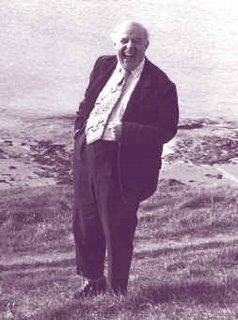 (registration and subscription req'd), relates this episode in which Betjeman responds to "Roy Herrod's put-down that religion did nothing to solve the world's problems." His reply was that it depends on what one perceives the world's problems to be. As for Betjeman, ' I choose the Christian's way (and completely fail to live up to it) because I believe it is true and because I believe - for possibly a split second in six months, but that's enough - that Christ really is the incarnate Son of God and that Sacraments are means of grace and that grace alone gives one the power to do what one ought to do.'"
(registration and subscription req'd), relates this episode in which Betjeman responds to "Roy Herrod's put-down that religion did nothing to solve the world's problems." His reply was that it depends on what one perceives the world's problems to be. As for Betjeman, ' I choose the Christian's way (and completely fail to live up to it) because I believe it is true and because I believe - for possibly a split second in six months, but that's enough - that Christ really is the incarnate Son of God and that Sacraments are means of grace and that grace alone gives one the power to do what one ought to do.'"To which I can only add, Amen on a snowy Monday morning. I must state up-front that Betjeman was not Catholic, but Anglican. It was to his lasting sorrow that his wife, Penelope neé Chetwode, became a Catholic.
When I read Dean's review Saturday evening, it immediately struck me that this episode was a good follow-up to Philosophy and Theology. It is all the more appropriate as a follow-up because Betjeman: A Life is by Wilson, whose faithful doubting turned into doubts about faith. Several years ago over Christmas I read his very thoughtful and elegiac God's Funeral: A Biography of Faith and Doubt in Western Civilization. However, Wilson's panegyric for God is not a really a survey of faith and doubt in Western civilization. Rather, it is a survey of faith and doubt in Victorian and Edwardian England. The book is no less poignant and thoughtful because it fails to live up to the inflated claims of the subtitle.


No comments:
Post a Comment